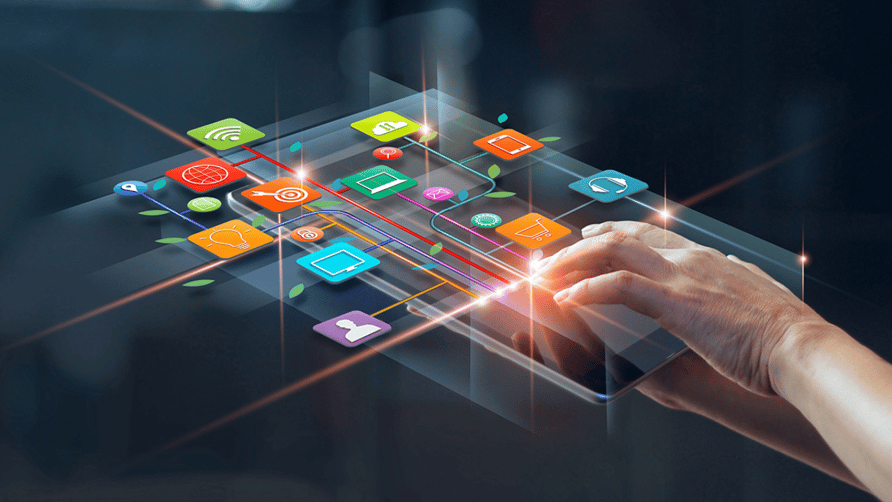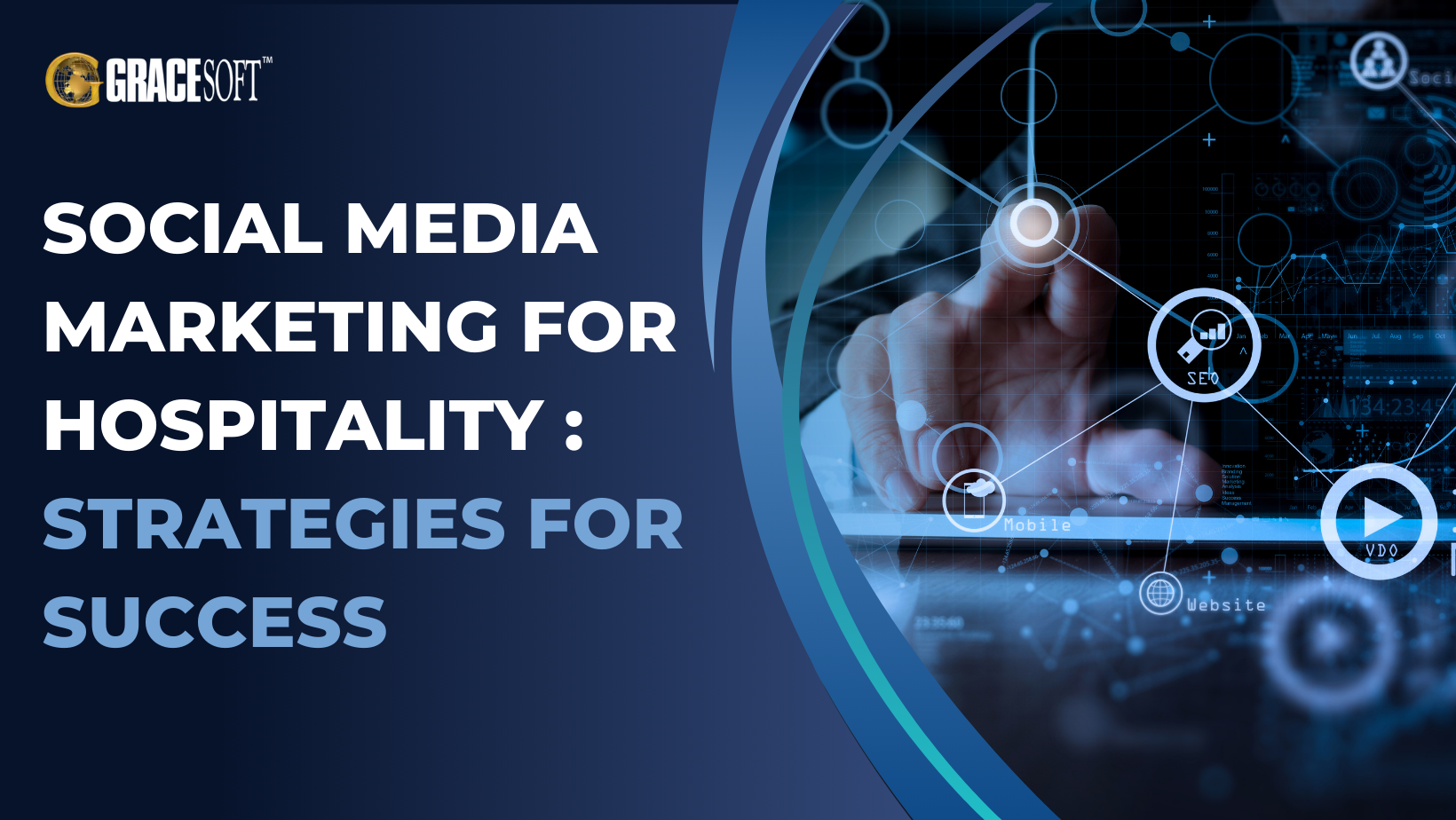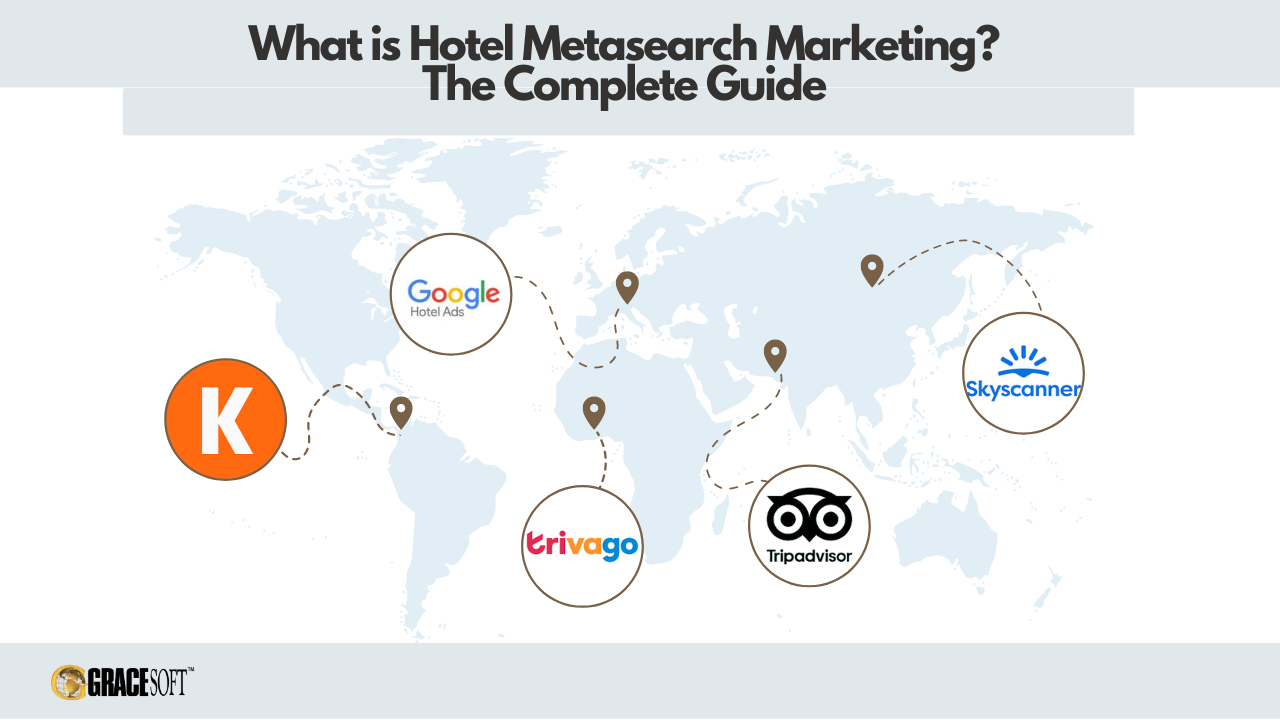AI Marketing Tools for Hospitality Industry to Elevate Your Business

The world of digital marketing is evolving rapidly, and businesses are increasingly using Artificial Intelligence (AI) tools to gain a competitive advantage. AI marketing tools have proven to be effective in enhancing customer experiences, optimizing operations, and driving revenue growth. In this article, we will explore what AI marketing tools are, delve into the current AI landscape, highlight the advantages of incorporating AI into your marketing strategy, and provide a curated list of powerful marketing tools that use artificial intelligence.
What are AI Marketing Tools?
AI marketing tools use AI and machine learning to automate and enhance marketing. They personalize experiences, improve targeting, and simplify processes. From customer interactions to data analysis, AI marketing tools revolutionize how businesses connect with their audience and make data-driven decisions.
The AI Advantage:
The incorporation of AI into marketing strategies offers numerous benefits, which are as follows:
Personalization: AI tools enable businesses to provide highly customized content and recommendations based on user behaviour, preferences, and historical data.
Efficiency: Automation of repetitive tasks and data analysis enables marketers to concentrate on strategy, creativity, and forming meaningful relationships with customers.
Data-Driven Decision Making: AI provides valuable insights through data analysis, helping businesses make informed decisions, optimize campaigns, and allocate resources effectively.
Improved Customer Experiences: AI enhances customer interactions, providing immediate and tailored responses through chatbots and virtual assistants, contributing to a positive customer experience.
List of AI Marketing Tools:
Free AI marketing tools
1. Google Analytics: AI is used to provide insights on user behaviour and website performance for informed decision-making.
2. Mailchimp: Create, send, and analyze email marketing campaigns.
3. HubSpot CRM: Manage customer relationships, track leads, and streamline sales processes.
4. Canva: Create professional-looking graphics, presentations, posters, documents, and other visual content.
Free AI marketing tools
With the advancements in AI technology, content creators now have access to highly sophisticated tools that streamline processes, generate high-quality content, and enhance creativity. Here are some notable AI tools for content creation:
5. OpenAI's GPT-3: GPT-3 (Generative Pre-trained Transformer 3) is an advanced language model that generates human-like text. It can be used for various content creation tasks, including article writing, conversational agents, and coding.
6. ShortlyAI: It is an AI-powered writing assistant that uses GPT-3 to generate high-quality content in various domains such as blog posts, creative writing, and idea generation.
7. Writesonic: Writesonic utilizes AI to assist in creating various types of content such as blog posts, social media content, and product descriptions. It aims to provide inspiration and save time.
8. Copy.ai: Copy.ai utilizes artificial intelligence to produce compelling marketing copy, product descriptions, ad copy, and other types of content for businesses and marketers.
9. Rytr: Rytr is an AI writing tool that can generate various types of content, including articles, blog posts, social media posts, and more. It aims to help users create content efficiently.
AI email marketing tools
AI-powered email marketing tools can enhance email campaigns significantly by providing personalized content, improving targeting, and optimizing delivery. Notable AI email marketing tools include:
10. Phrasee: Phrasee leverages AI to create and optimize email subject lines, content, and calls to action, tailoring language to increase engagement and conversion rates.
11. Automizy: Automizy uses AI to optimize email campaigns, offering features like A/B testing, subject line optimization, and personalized content recommendations to enhance overall campaign performance.
12. Omnisend: Omnisend uses AI-driven automation for personalized email marketing, including cart abandonment emails and product recommendations based on customer behavior data.
13. Moonsend: Moonsend has integrated AI features that optimize email campaigns, analyze subscriber behaviour, and provide insights to enhance engagement. It also offers segmentation and automation based on user behaviour.
AI-driven customer service tools
For businesses aiming to improve efficiency and enhance customer satisfaction, AI-powered customer service tools have become essential. Here are some noteworthy AI customer service tools:
14. Zendesk: Zendesk uses AI to automate customer service tasks and provide predictive analytics, including chatbot support.
15. Drift: Drift provides an AI-powered conversational marketing platform that assists customers during the buying process with real-time engagement and lead qualification.
16. Chatbot Platforms: AI-powered chatbots can handle customer queries, provide instant responses, and assist with tasks like order tracking, product inquiries, and troubleshooting.
17. Ada Support: Ada Support is a customer service platform that uses a chatbot to handle inquiries, guide customers through problem-solving processes, and provide relevant information.
AI tools for social media
AI-powered tools have become crucial in helping businesses manage and optimize their social media presence. They can assist in content creation, scheduling, analytics, and audience engagement. Here are some noteworthy AI tools for social media:
18. Buffer: Buffer uses AI to optimize social media posts for engagement and provides analytics to track performance.
19. Hootsuite: Hootsuite utilizes AI for managing social media, scheduling posts, monitoring conversations, and providing analytics to track performance on different platforms.
20. Zoho Social: Zoho Social uses AI to provide insights into social media performance, audience engagement, and post scheduling for optimal reach.
AI tools for data analysis
Businesses seeking meaningful insights, informed decisions, and a competitive edge rely on AI-powered data analysis tools. Below are some powerful options:
21. Tableau: Tableau's AI-powered data visualization features make exploring complex datasets easier, allowing users to create interactive reports and dashboards.
22. RapidMiner: RapidMiner is an open-source data science platform that incorporates AI and machine learning tools. It facilitates data preparation, modeling, and evaluation.
23. Alteryx: Alteryx is an analytics platform that blends data, incorporates AI for predictive analytics, data preparation, and automation of complex data processes.
AI tools for affiliate marketing
AI tools can greatly enhance affiliate marketing campaigns by optimizing targeting and providing valuable insights. Here are some AI tools for affiliate marketing:
24. Affise: Affise is an AI-powered affiliate marketing platform that provides real-time tracking, analytics, and automated optimization for advertising campaigns. It maximizes the impact of affiliate efforts.
25. Everflow: Everflow is a machine learning-based affiliate marketing platform that offers real-time analytics and fraud prevention and optimization of affiliate performance.
26. Impact Radius: Impact Radius utilizes AI to enable advanced attribution modeling, fraud detection, and optimization of affiliate marketing campaigns, allowing advertisers and publishers to maximize their ROI.
How is artificial intelligence (AI) utilized in the hospitality industry?
AI is widely used in the hospitality industry to enhance operational efficiency, improve guest experiences, and streamline various processes. Here are several ways AI is employed in the hospitality sector:
1. Chatbots and Virtual Assistants: Hotels utilize AI chatbots and virtual assistants to enhance customer service, provide 24/7 support, and assist with reservations and inquiries.
2. Personalized Guest Experiences: AI algorithms analyze guest data, preferences, and behaviors to personalize services and experiences. From room preferences to customized amenities, hotels can use AI to tailor offerings to individual guests, enhancing overall satisfaction.
3. Dynamic Pricing and Revenue Management: AI is utilized for dynamic pricing strategies in the hospitality industry. This involves optimizing room rates based on factors such as demand, seasonal variations, and competitor pricing to maximize revenue by adjusting prices in real-time.
4. Predictive Analytics for Demand Forecasting: Predictive analytics, powered by AI, helps hotels accurately forecast demand. By analyzing historical data and external factors, hotels can optimize inventory, staffing levels, and marketing strategies to align with anticipated demand fluctuations.
5. Voice-Activated Services: Hotels now offer voice-activated devices in guest rooms for convenient control of room features, services, and information access.
6. Facial Recognition for Check-In and Security: Facial recognition tech streamlines check-in and enhances security. Guests scan their faces to check-in, improving efficiency.
7. Robotics and Automation: Hotels use robots for tasks like room service, cleaning, and concierge services. This improves efficiency and adds a futuristic touch to the guest experience.
8. Smart Room Controls: Guests can use a mobile app or voice commands to customize their room's lighting, temperature, and entertainment systems for added comfort and convenience.
9. Recommendation Engines: AI recommendation engines suggest personalized experiences, dining options, and activities based on guests' preferences and behaviour, helping hotels offer targeted recommendations.
10. Social Media Monitoring and Reputation Management: AI-powered tools can monitor social media platforms to manage hotels' online reputation, promptly address concerns, and identify areas for improvement.
11. Employee Training and Management: AI can be utilized for employee training and workforce management. Chatbots can provide on-demand training, while AI algorithms help optimize staffing levels based on demand patterns.
12. Augmented Reality (AR) and Virtual Reality (VR): AR and VR tech offer virtual tours for potential guests to explore hotel facilities and rooms, helping them make informed booking decisions.
AI technology is transforming the hospitality industry by offering personalized services, optimizing operations, and enhancing efficiency. This leads to increased guest satisfaction and loyalty.
You May Also Like
These Related Stories

kickstart a video marketing campaign for your Hotel!

Social Media Marketing for Hospitality: Strategies for Success


No Comments Yet
Let us know what you think